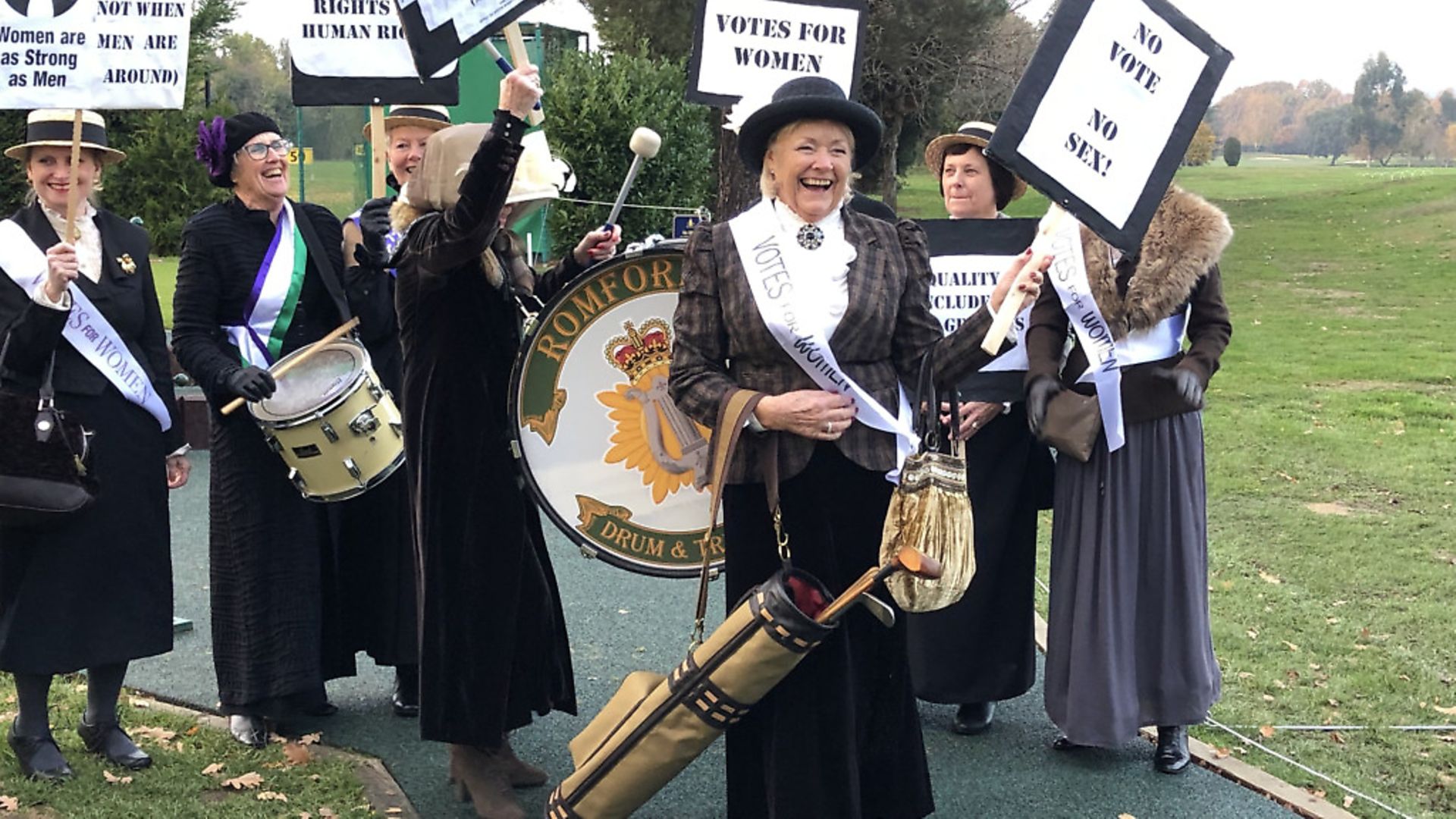
Since austerity slashed funding, women’s services have been left reeling. And Brexit is set to make things even worse, says CAROLINE CRIADO PEREZ
In the past year, an estimated 1.3 million women have been victims of domestic abuse.
The police receive a domestic violence related call every 30 seconds. Every week, an average of two women are killed by their partner or ex-partner.
And in Westminster, the much watered-down Domestic Abuse Bill is torturously snaking its way through parliament. Repeatedly delayed, in no small part thanks to the malingering presence of Brexit, the government is due to define domestic abuse in law for the first time any day now. The intent is for women to have a better chance of receiving justice — and protection against violence.
Violence against women services are still, as they have been since the coalition government first started slashing spending in 2010, in crisis. Local authorities have cut funding for refuges by at least £7 million since 2010, and one in six domestic abuse refuges have closed due to lack of funding. More than one in 10 of the domestic abuse services responding to Women’s Aid’s annual survey had no local authority funding at all in 2016/17 and 60% of referrals to refuges had to be turned down for lack of space. That’s more than 10,000 women, many of them accompanied by children, who were left with nowhere else to turn.
In desperation, increasing numbers of women are taking to sleeping rough. Some of them return to their violent partner. Some of them are killed.
You might think, then, that this Domestic Abuse Bill can’t come soon enough. But as with so many of this government’s initiatives when it comes to women, this Bill may never progress beyond promising-sounding words, because unless it comes with additional and, crucially, sustainable funding for violence against women services, all it may end up doing is putting increased strain on an already overloaded sector.
But this Bill doesn’t come with this necessary extra funding. In fact, on this pressing question, the Bill has nothing to say at all. And how can it? Since we voted to leave the EU, this country has been haemorrhaging money – £500 million a week, according to the Centre for European Reform. And it’s only going to get worse if we leave.
Analysis released this week by the National Institute for Economic and Social Research (NIESR) found that an ‘orderly no deal’ – there’s an oxymoron if ever I heard one – would cost the UK £140 billion a year, and reduce GDP by 5.5%. Not quite the Brexit dividend we’d been sold, is it?
May’s deal is hardly better: NIESR’s analysis found that it will cost the UK economy 3.9% – or £100 billion a year –compared to just staying in the EU. That’s the equivalent of losing the economic output of Wales or the City of London. The average person would be more than £1,000 a year worse off, and tax revenues would fall by up to 2%, which translates as the equivalent of up to £23 billion less to spend on public services at today’s prices. You’d want to be taking back quite a lot of control for that.
This dire economic environment would be bad enough if we were in the EU and could still plug in gaps with EU funding. But, of course, if we leave, we lose our access to EU money. So, where is the funding going to come from?
Back in 2017, the government promised they will guarantee any EU funds that have already been agreed provided that: the projects are good value for money, and are in line with domestic strategic priorities. But given protecting women from male violence hasn’t exactly been a government priority before a chunk the size of Wales is wiped off the economy, it’s hard to believe it will suddenly seem crucial when we Brexit.
So what now? Brexit has always been a disaster for women. But because women have been excluded from the debate from the beginning, these crucial issues never got a serious airing before the 2016 referendum. No one voted for victims of domestic violence to be less protected – but if we Brexit, that is the sure future we face.
Theresa May has a strong track record of tackling violence against women. If she wants to protect that record, there is one very easy thing she can do. Indeed, there is one very easy thing that she must, and ultimately, given parliamentary arithmetic, will almost certainly have to do. Now that the dire impacts of Brexit for women are becoming clearer by the day, May should do what’s best for the country, and what’s best for women, and give the UK a People’s Vote.









